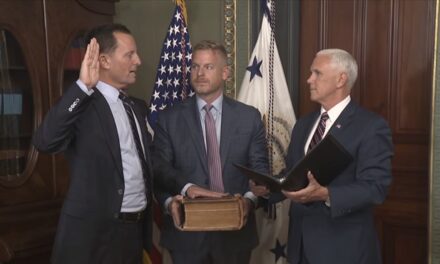Via – The Associated Press
DES MOINES, Iowa (AP) — A Democratic campaign that has cost more than $1 billion, dashed the ambitions of veteran politicians, forced conversations about race, gender and identity and prompted fierce debate over health care and taxes crests Monday in the Iowa caucuses.
By day’s end, tens of thousands of Democrats will have participated in the famed Iowa caucuses, the premiere of more than 50 contests that will unfold over the next five months. The caucuses will render the first verdict on who among dozens of candidates is best positioned to take on President Donald Trump, whom Democratic voters are desperate to beat this fall.
It is a moment thick with promise for a Democratic Party that has seized major gains since Trump won the White House in 2016. But instead of optimism, a cloud of uncertainty and deepening intraparty resentment hangs over Monday’s election, which, after a multi-year buildup, will finally begin to reveal who and what Democrats stand for in this tumultuous era.
“If anybody tells you they know who’s going to win, either they’ve got a whisper from God or they’re loony, because nobody knows,” said Deidre DeJear, the former state chair for Kamala Harris and the first black woman to win a statewide primary in Iowa.
Polls suggest that Vermont Sen. Bernie Sanders may have a narrow lead, but any of the top four candidates — Sanders, former Vice President Joe Biden, Massachusetts Sen. Elizabeth Warren and former South Bend, Indiana, Mayor Pete Buttigieg — could score victory in Iowa’s unpredictable and quirky caucus system as organizers prepare for record turnout. Sen. Amy Klobuchar, who represents neighboring Minnesota, is also claiming momentum, while outsider candidates such as entrepreneur Andrew Yang, billionaire activist Tom Steyer and Hawaii Rep. Tulsi Gabbard could be factors.
Iowa offers just a tiny percentage of the delegates needed to win the nomination but plays an outsize role in culling primary fields. A poor showing in Iowa could cause a front-runner’s fundraising to slow and support in later states to dwindle, while a strong result can give a candidate much needed momentum that propels him or her to the nomination.






Recent Comments